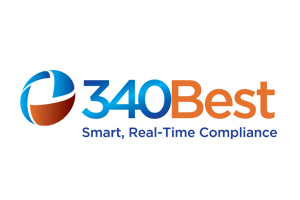SPONSORED CONTENT
Program integrity is crucial to the management of a covered entity’s 340B operations. Key components include knowing what is expected of the covered entity and having the right questions to ask your third party administrator about their practices and software. The purpose of this article is to highlight valuable objectives to have in place to ensure continuous program oversight and compliance with 340B guidelines and regulations. In this piece, I focus in particular on compliance and oversight related to patient eligibility and include important questions 340B providers must ask to both optimize their program performance and ensure compliance.
Program Integrity
What it Means
One of the driving principles of HRSA’s 340B Program Integrity Guide is that there must be a formalized process related to program operational oversight that will ensure compliance with 340B requirements.
To meet the definition of patient, covered entities must establish a relationship with their patients such that the entity will maintain records of the individuals’ health care. This means that the individual receives health care services from a health care professional who is either employed by the covered entity or provides health care under contractual or other arrangements (e.g., referral for consultation), such that responsibility for the care provided remains with the covered entity. This would include any employee of a covered entity who meets the criteria of the patient definition and therefore would be eligible to access 340B pricing.
An individual is not considered a ‘‘patient’’ of the entity if the only health care service received by the individual from the covered entity is the dispensing of a drug.
There is specific guidance for patients eligible for and participating in Medicaid to ensure compliance with the manufacturer duplicate discount prohibition. This topic is out of scope for this article, but further information can be found at https://www.hrsa.gov/opa/program-requirements/medicaid-exclusion/index.html
Why it Matters
As outlined in section 340B of the Public Health Service Act of 1992, the ultimate responsibility for program oversight and compliance lies with the covered entity. This said, many covered entities are unable to administer their 340B programs alone and must place a large amount of trust with a 340B program Third Party Administrator or “TPA”. In establishing these relationships, covered entities most often focus on pricing, software capabilities, and reporting, as well as the need to need to answer crucial questions such as “How will you ensure I am compliant”, “Will these reports assure that I can tie each prescription to a patient we serve?”, “Is my data safe?”, and “How will you keep me compliant?” Adverse finding reports from FY 2021 HRSA audits underscore that duplicate discounts and drug diversion issues continue to be primary areas of concern.
What are some ways you can ensure your TPA is managing your program in a safe, compliant manner?
- Eligibility review – What rules and configurations will be applied to your entity to ensure that the program is compliant? Ask questions around how claims get onto inventory, what controls are in place to ensure that non-eligible activity notifications are in place, how they monitor for mistakes, how will they assist you in avoiding diversion and duplicate discounts.
- Cyber security – HIPAA data is one of the most sought-after areas in cybercrime. How is your data protected? At the bare minimum, is your data protected at rest and in transit? 340Best’s parent company conducts interviews with healthcare supply chain organizations, and it is surprising how many large companies do not understand the basics of data security and do not encrypt files and critical data. At 340Best, we pay close attention to this and have the practical experience and knowledge to provide ongoing support related to this very important and overlooked area of concern.
- Self-audit support and educational materials – Too often, once a program is put in place it can go into “auto-pilot” mode despite your best intentions. It is the responsibility of the covered entity to monitor the program. Often the covered entity is not provided with ample information to efficiently review the program. Do you have a self-audit plan? With what frequency do you review or adjust? Is it the same for every TPA? What do you do if all the necessary information is not provided to you? How do you implement a corrective action plan?
- Reporting – What reports are available? Is there the ability to review and download them? Are the reports stored for audit purposes or are they in the moment reports? What controls are in place to ensure that data is accurate and reflective of all the transactions associated with a claim, or all the visits associated with a patient?
- Notification of “non-eligible” activity – Cost is spent on sales, implementations are long and drawn out, and then the teams vanish until the entity has an issue. Then the reality sets in – covered entities dial into a generic number and simply become a number in queue. How fast will the entity’s issues be addressed, and how many communications will it take before the issue is resolved?
- Referrals – What is in place to truly ensure that patients and their visit can be considered an eligible patient of the covered entity? 340Best is experienced in this area of complexity.
How 340Best Can Help
At 340Best, our first step in third-party administration is to identify and align with clients’ objectives such as:
- Understanding and as necessary working with the covered entity to optimize operations, education, and data transparency across the entire patient journey.
- Connecting across multiple technology partners and data sources to obtain correct data
- Utilizing the right combination of configurations to optimize program performance and keep the entity compliant
- Partnering across impacted functional areas for a seamless implementation
- Ensuring Continuous Quality Improvement (CQI), pre- and post- go live
- Determining strategies for program optimization
- Establishing a cash card program to aid in access to medications for uninsured or underinsured patients, leveraging access to 340B discounts offered to the covered entity.
- Conducting audit support which allows for fresh eyes and a different approach to research, review, and analysis of current compliance programs.
At 340Best, we perform thoroughly completed audits complete with suggestions for areas of improvement. Regular independent audits are viewed favorably by both HRSA and manufacturers to ensure program integrity. We have also developed the practical experience to support client needs. With access to state-of-the-art core technology, a clearly defined road map, the most robust cash program in the industry, and dedicated resources, we provide a 340B administrative model that continually advances the entity’s ecosystem and continuous growth with a community focus.
Please contact our Business Development Team for more information regarding how 340Best might support your 340B program operations at info@340Best.com or call us at 845-705-6677.




